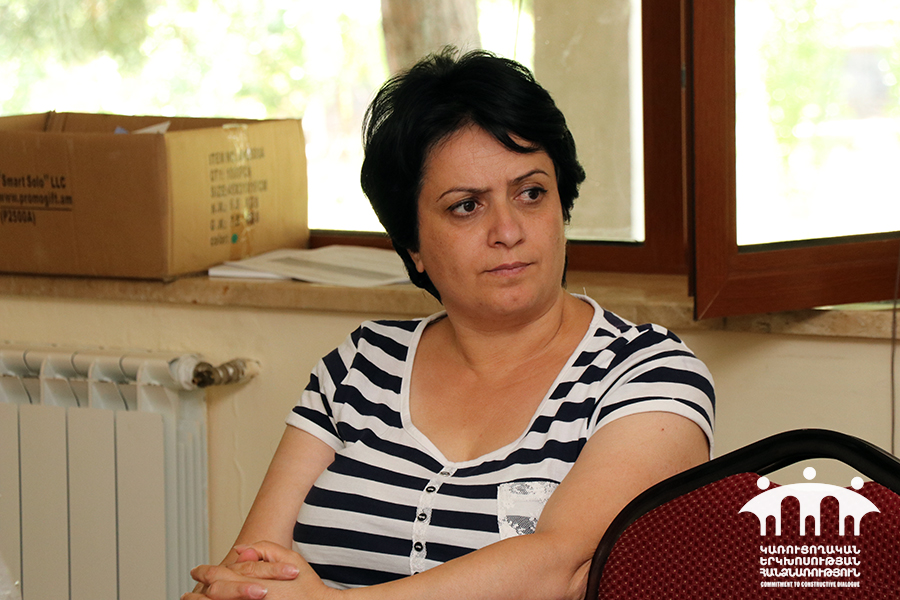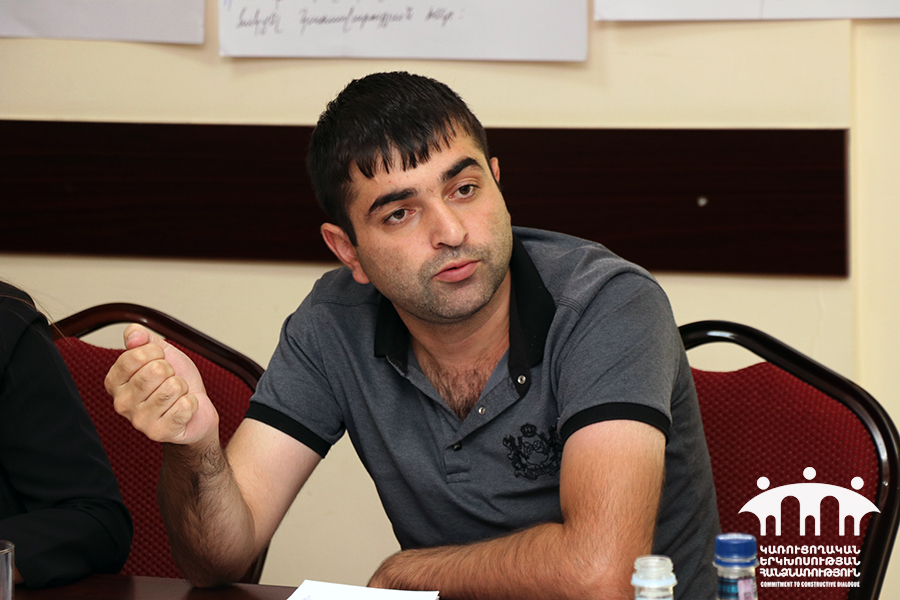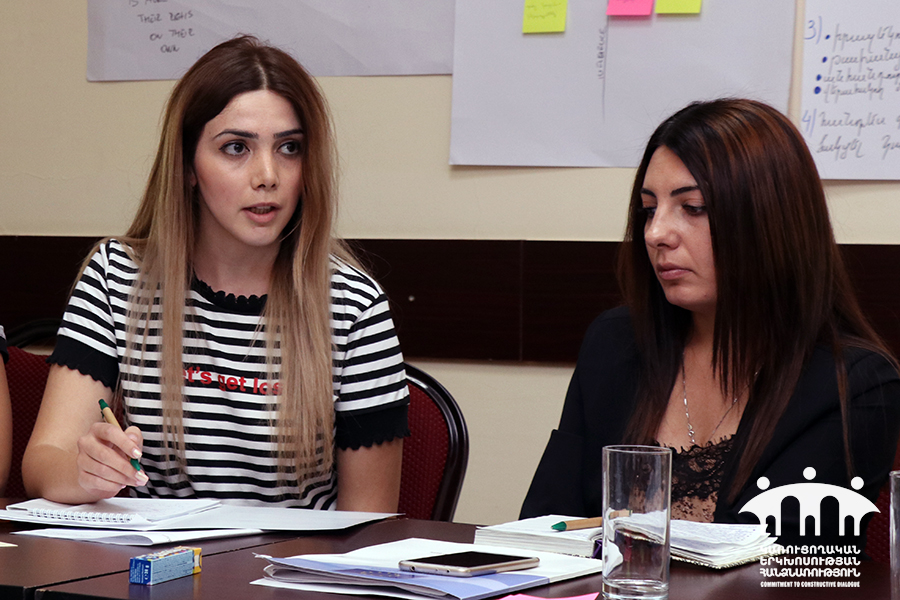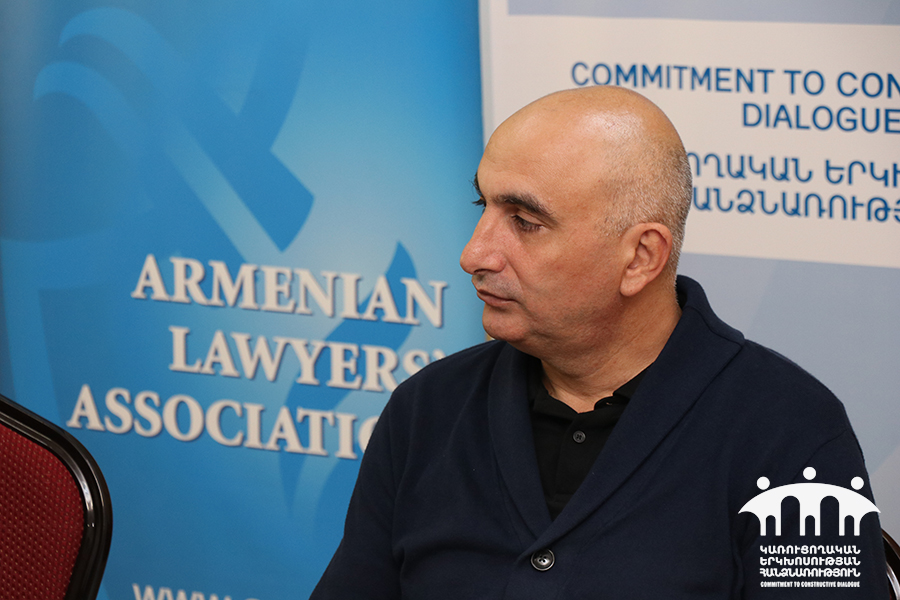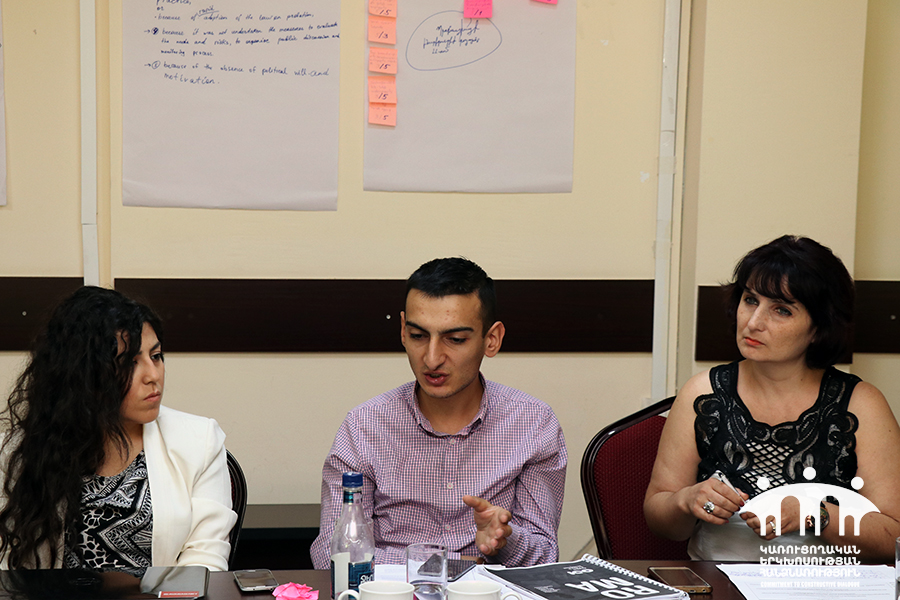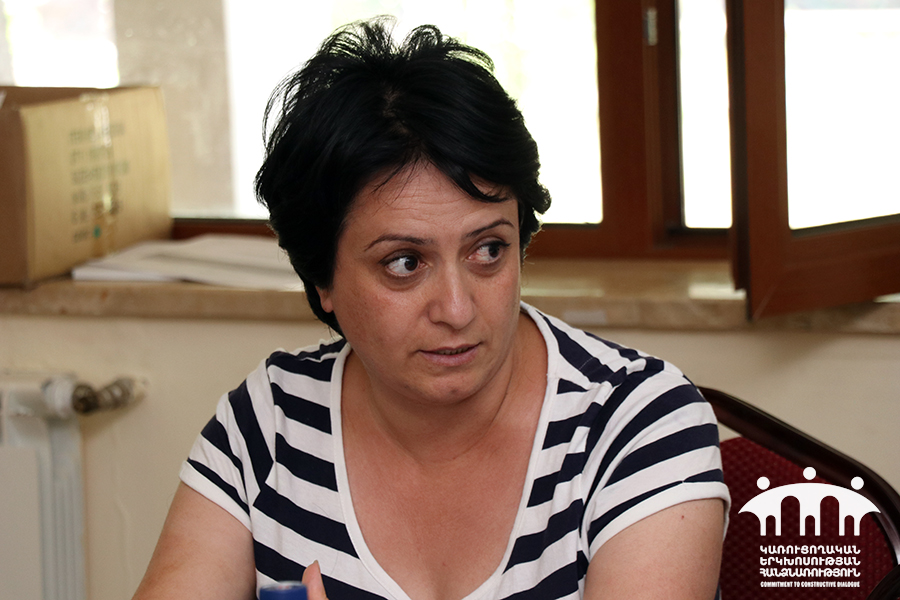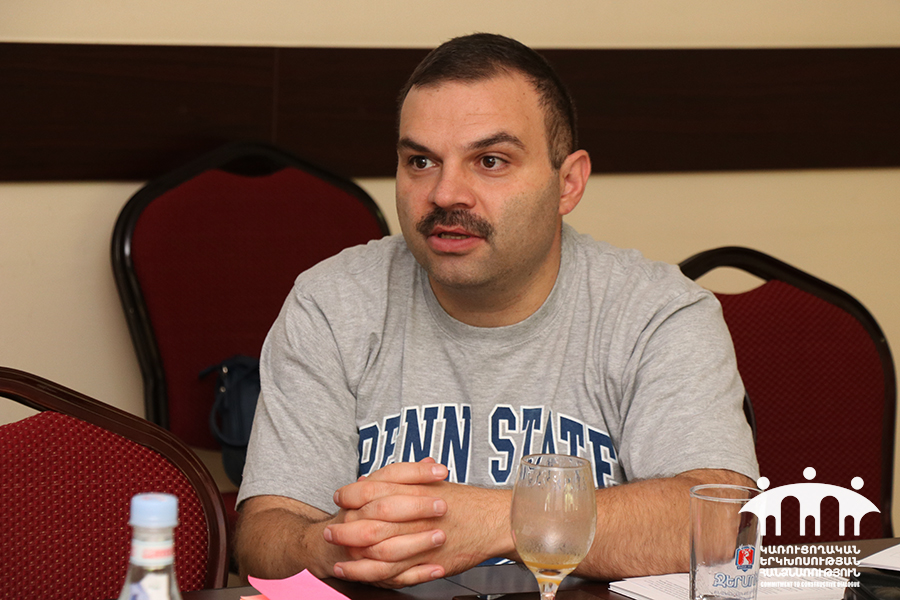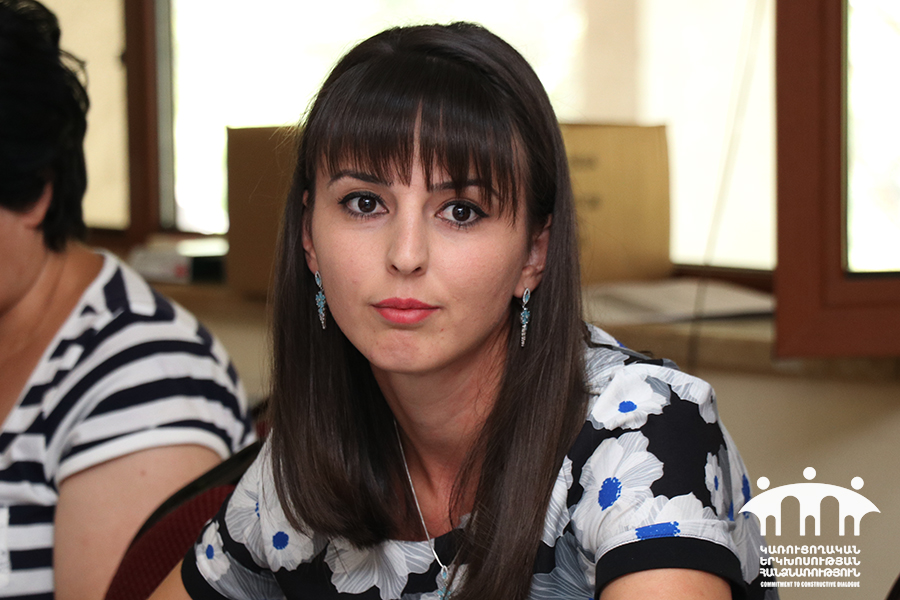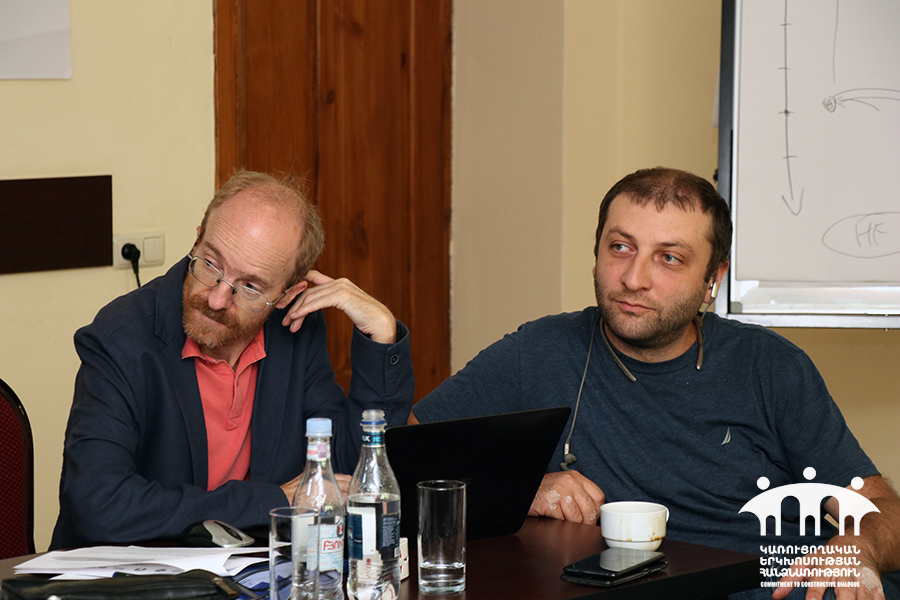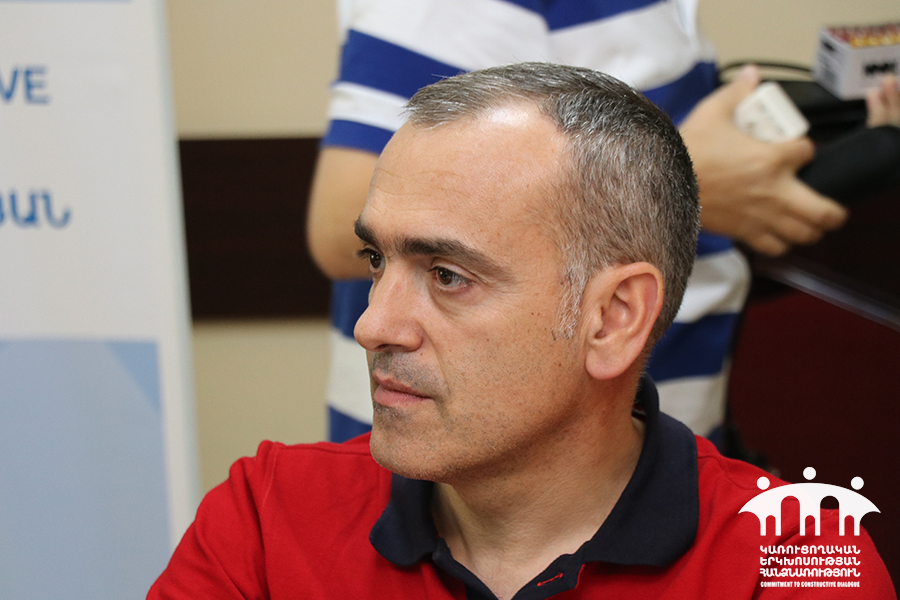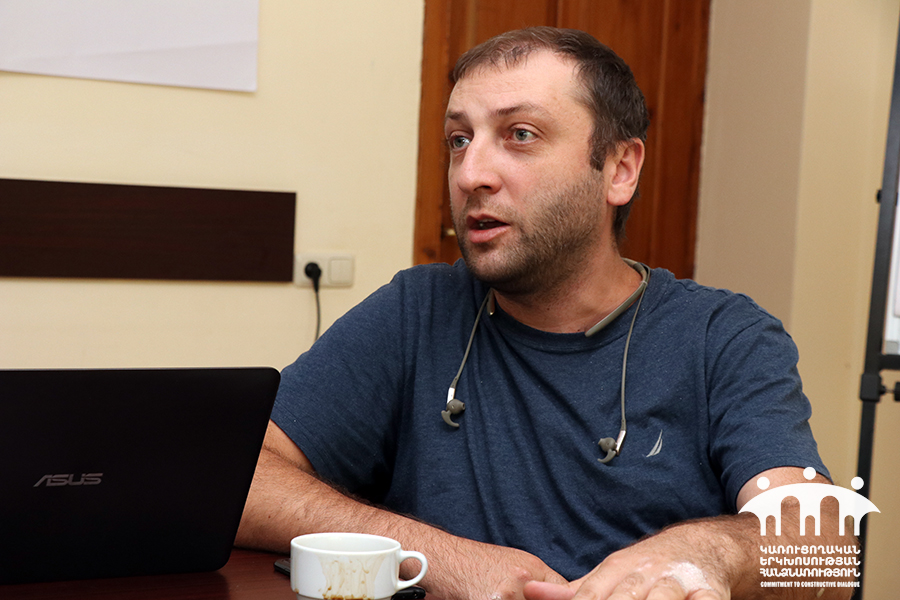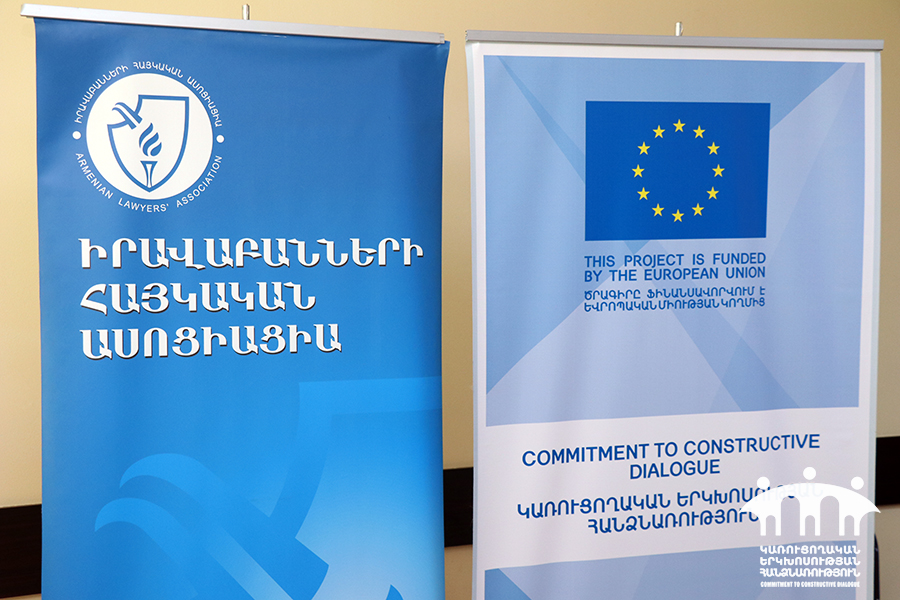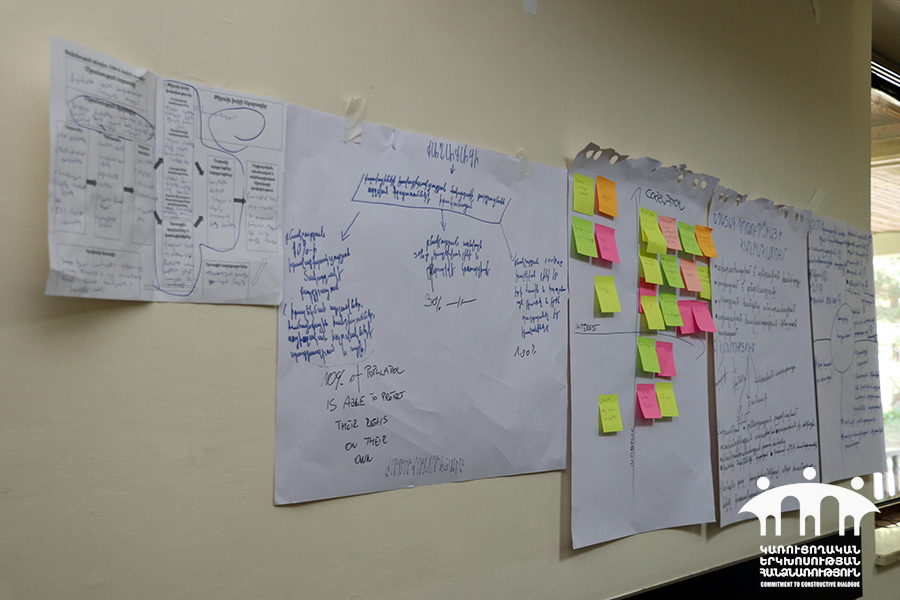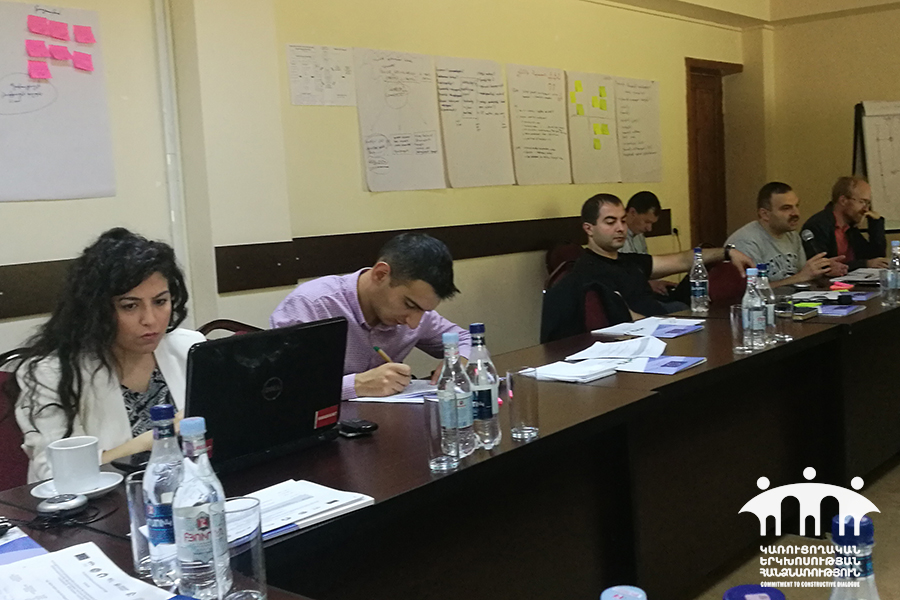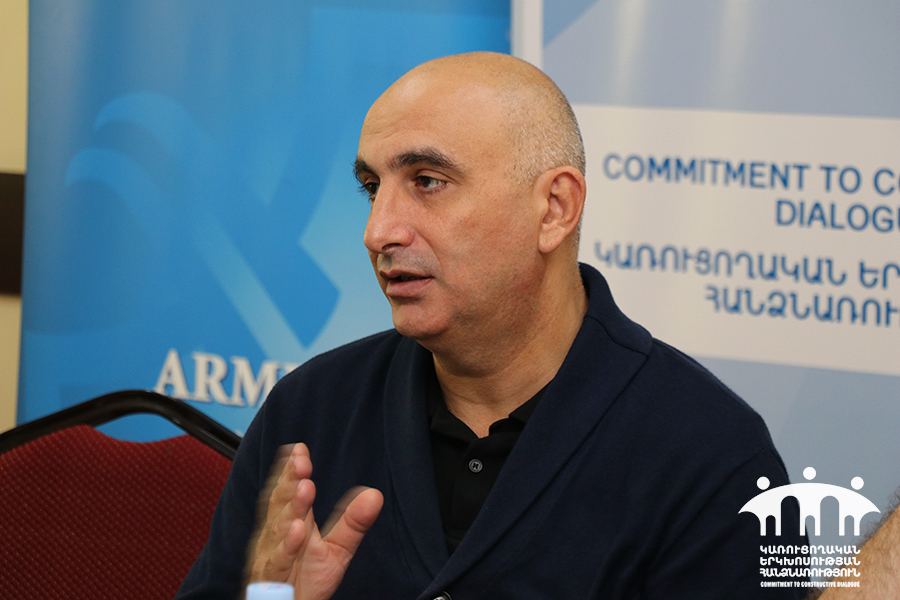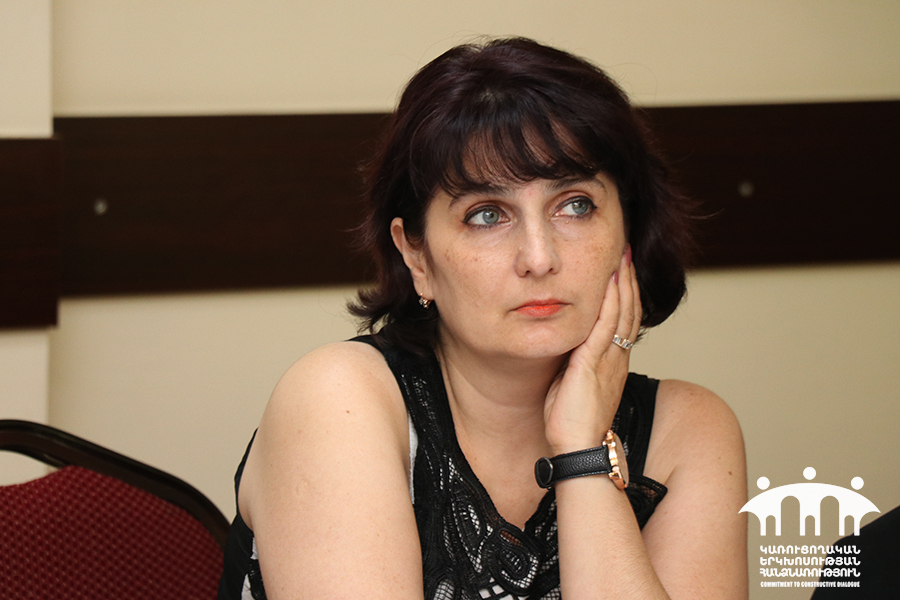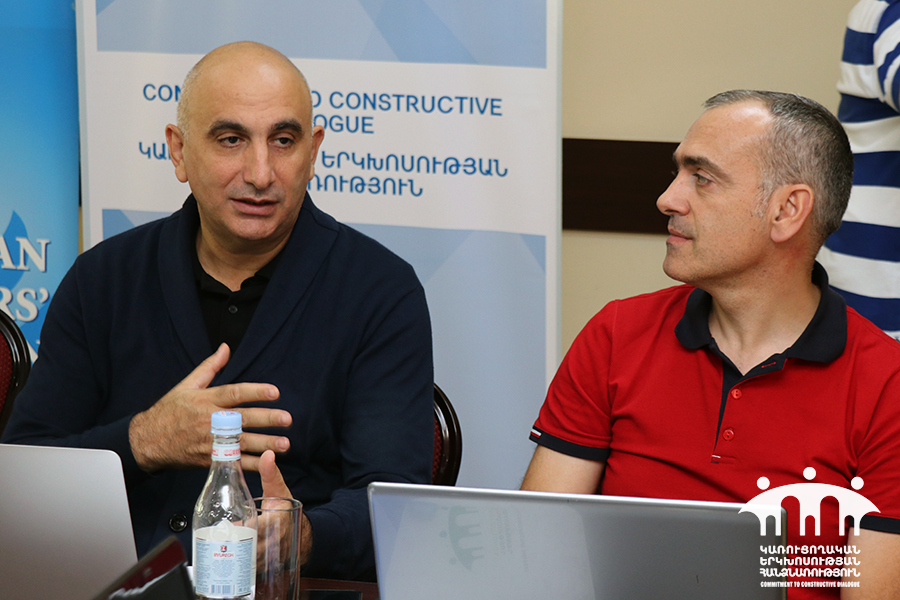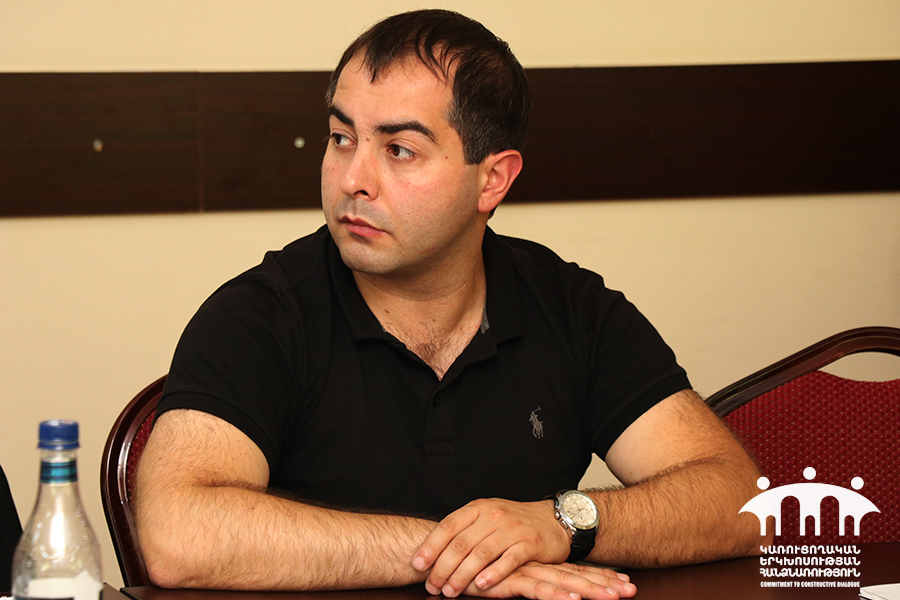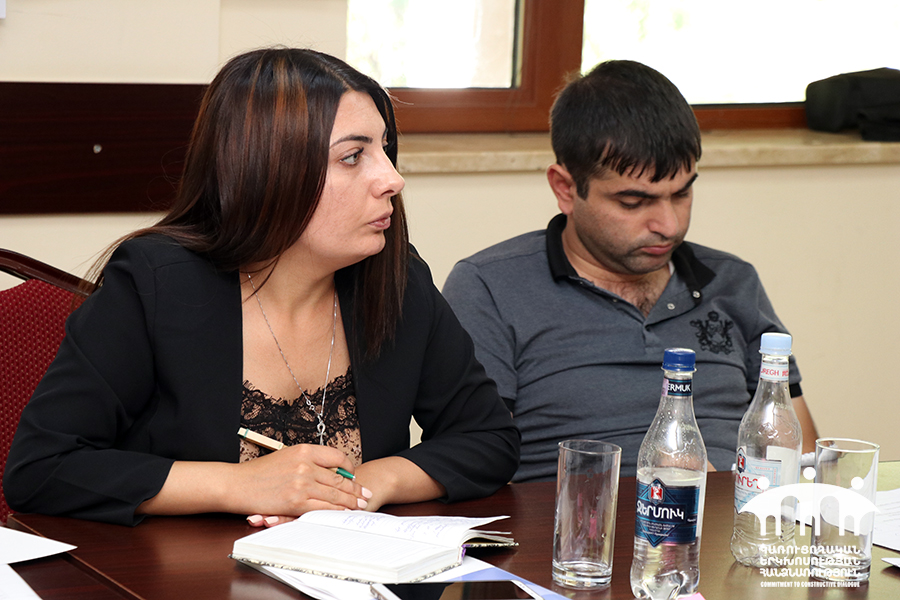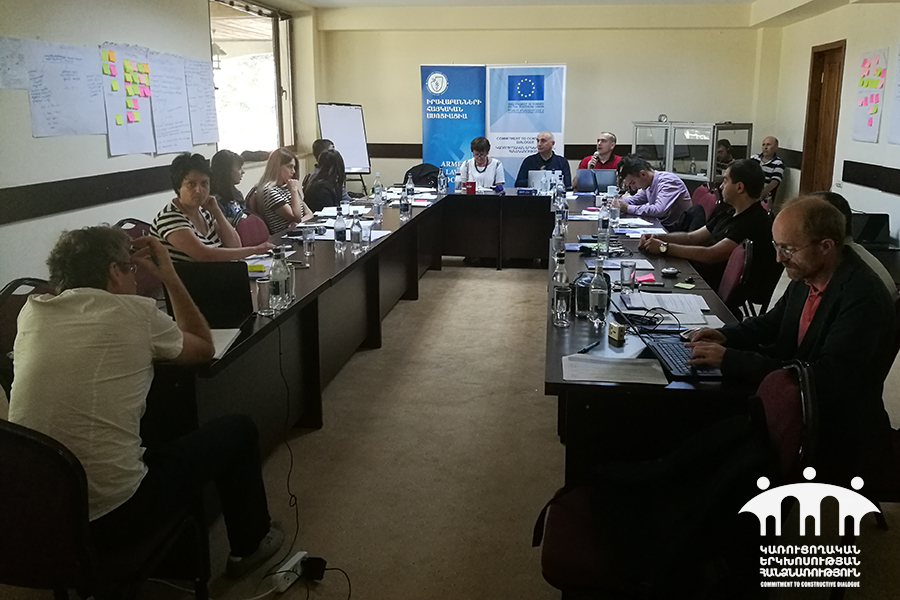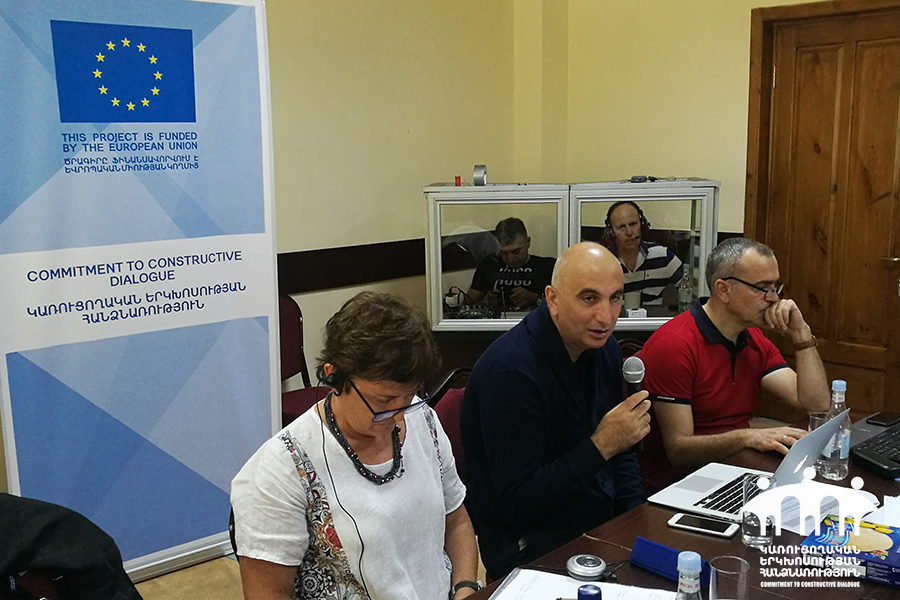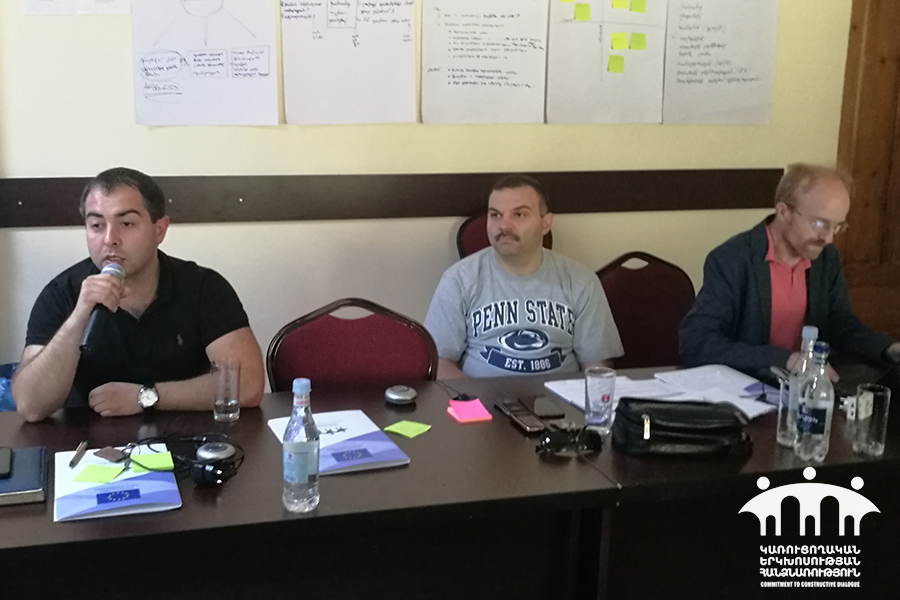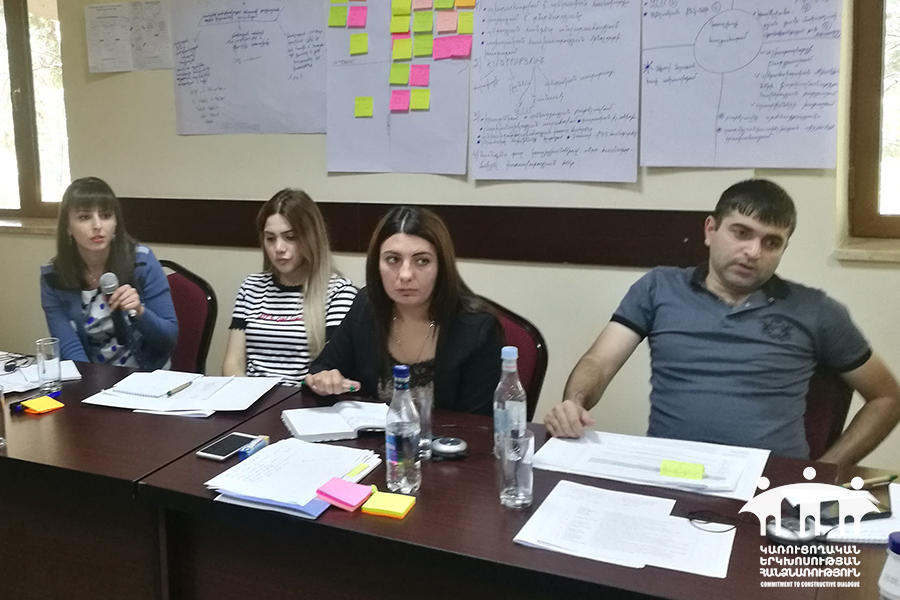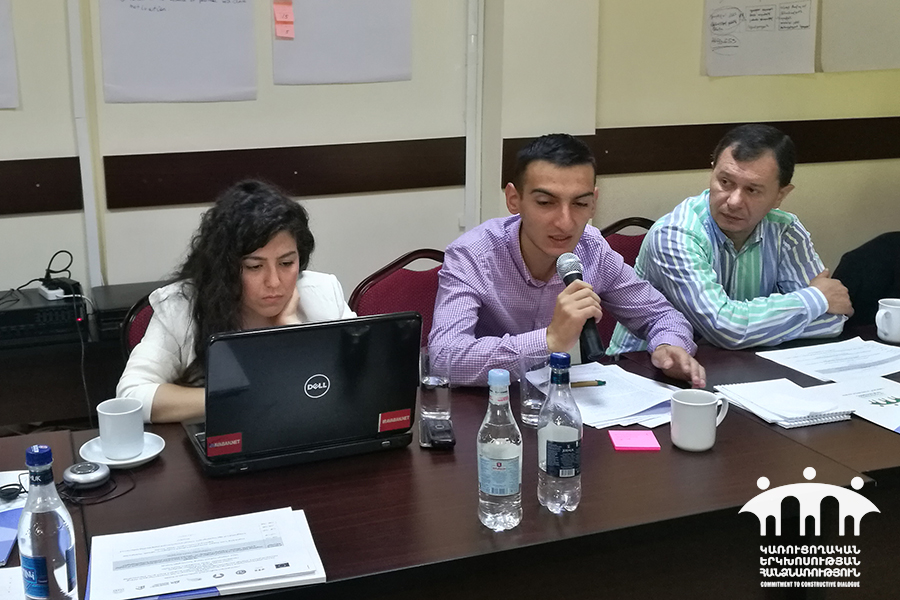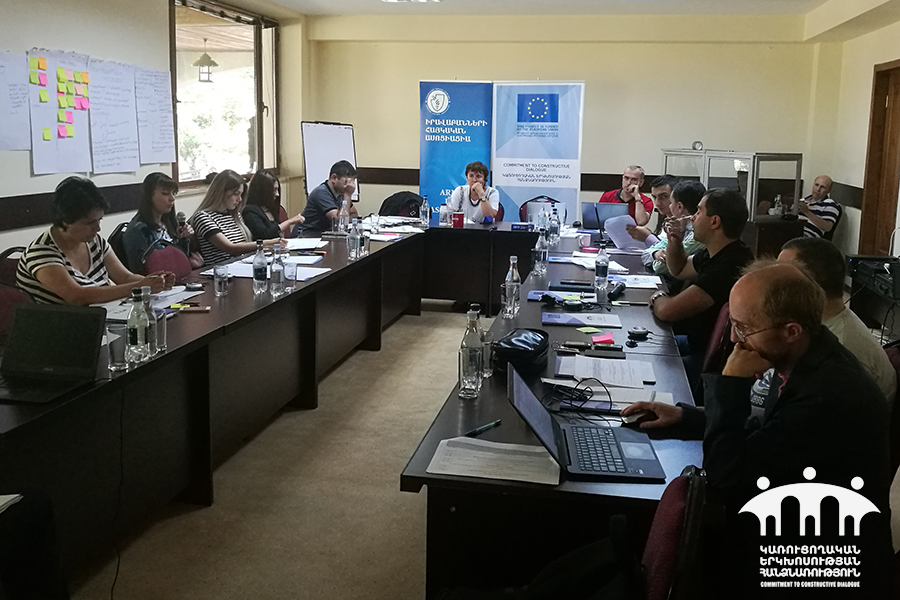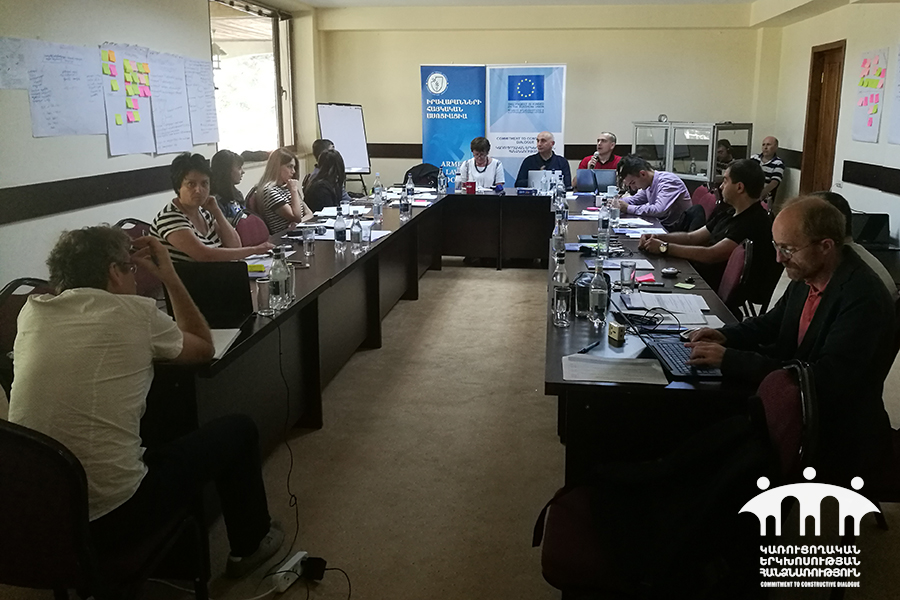
On 31 August, the 5-day seminar organised in the scope of the EU-funded “Commitment to Constructive Dialogue” project and entitled “Cooperation of non-profit non-governmental organisations and government in the Czech Republic. Development of public policies and dialogue. Lessons learned from the operation of the incubators facility” ended.
Liana Makvetsyan, the Gegharkunik regional branch and incubator coordinator, a participant of the training, sais that the working days had been efficient as they had done practical exercises, apart from gaining theoretical knowledge, which enabled them to consolidate their knowledge. “The presentation of the Czech knowledge was also very important as we fulfill different functions here without totally acknowledging their effectiveness. As the Czech experience already exists and the lessons learned are clear, based on that, it is very easy to see what we can change and introduce here. It is also very important to mention that our experience is useful to them, too,” Liana noted.
She also noted that during the seminar questions related to the problems revealed in the working process of the regional incubators and their solution, questions that might be beneficial for other NGOs in organising their work better.
Arthur Sukiasyan who is the Lori Regional Branch Coordinator said that the discussion with the Czech partner had been very productive: “It seems that we know what we talk about but we don’t use the different methods in order to give solution to various problems. It turns out that their years’ experience, that has been used for many years and is helpful, differs from ours.” In his words, it is also important for the regional coordinators that such meetings be organised on a regular basis as it is an opportunity to exchange experience from different marzes of Armenia. Thus, a more accurate picture is formed by both Czech and local coordinators.
Victoria Yeghoyan, the Incubator Coordinator and the Shirak regional office lawyer, said that the seminar had been productive as practical exercises had been incorporated. “The Czech experience, especially the housing programme for the homeless families which can be applied in some marzes of Armenia where such a problem exists, e.g. in Gyumri,” said Victoria Yeghoyan.
Teams were formed. Each of them chose a problem, set a goal and the current issues and reached the final result. This was important insofar as it enabled the participants to work in teams.
“A number of agreements were reached and questions related to provision of individual advice to non-governmental organisations were discussed. I am confident that in the scope of incubators the civil society organisations will be able to strengthen their capacities, in order to contribute to a stronger CSO sector not only in Yerevan, but also on marzes,” said Vache Baghdasaryan, the Legal Adviser and the Incubator Coordinator of the Syunik Regional Branch.
The “Commitment to Constructive Dialogue” project is implemented with the financial support of the European Union by a Consortium of civil society organisations, which are the Armenian Lawyers’ Association (lead organisation), Agora Central Europe (NGO based in the Czech Republic), the Armenian Centre for Democratic Education-CIVITAS, the International Centre for Human Development, the SME Cooperation Association and the Union of Communities of Armenia.
The project aims to enhance the influence of civil society organisations (CSOs) and CSO coalitions/networks on public policies in Armenia. This will allow organisations that are already working in sectoral coalitions to access additional resources, new groups of civil society experts to come together and encourage to place their causes on the local and national policy agenda, to identify common concerns and priorities and approach government bodies with constructive and strategic policy engagement initiatives.
The project will provide sub-grants to CSOs and CSO coalitions for developing public policies and bringing significant changes in the 9 target sectors selected within the project, including those of justice, human rights, public finance management, business, education, and the social sector: social inclusion of children with disabilities, agriculture, economy, and energy.


